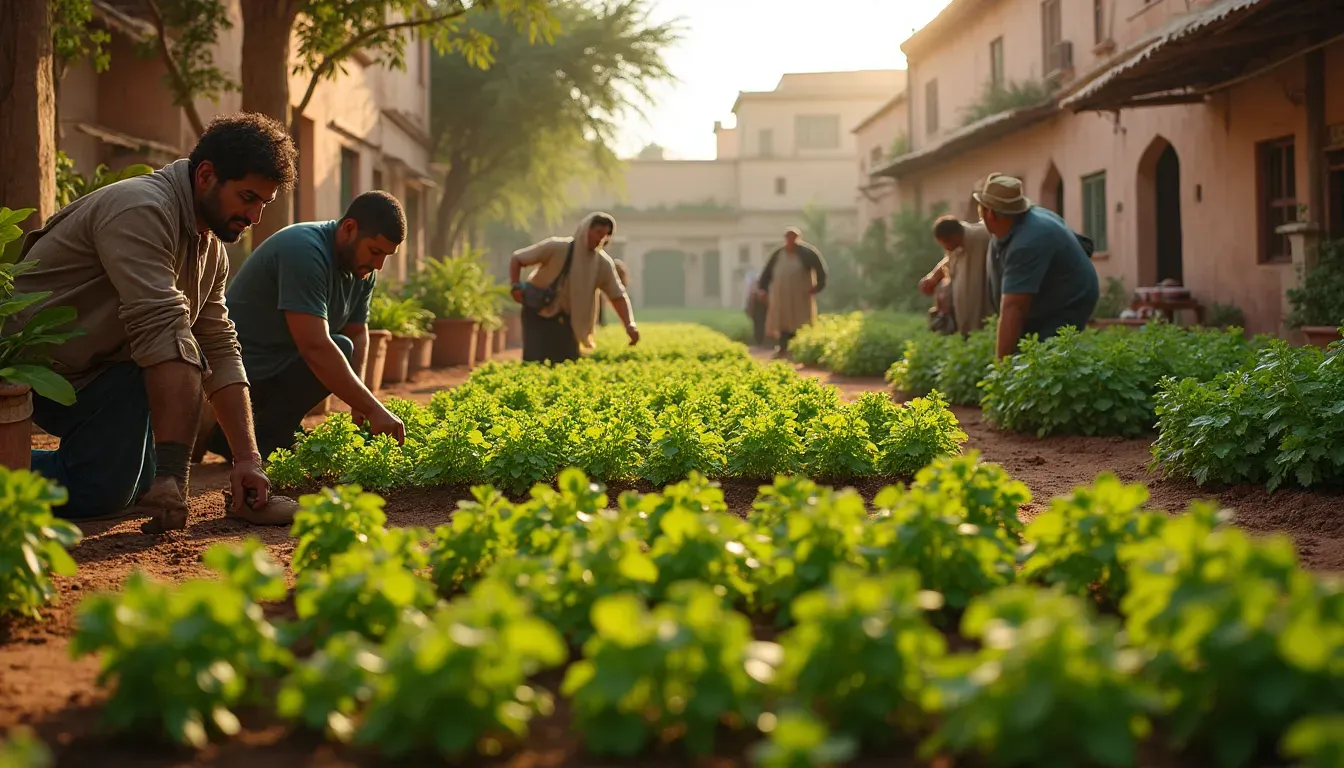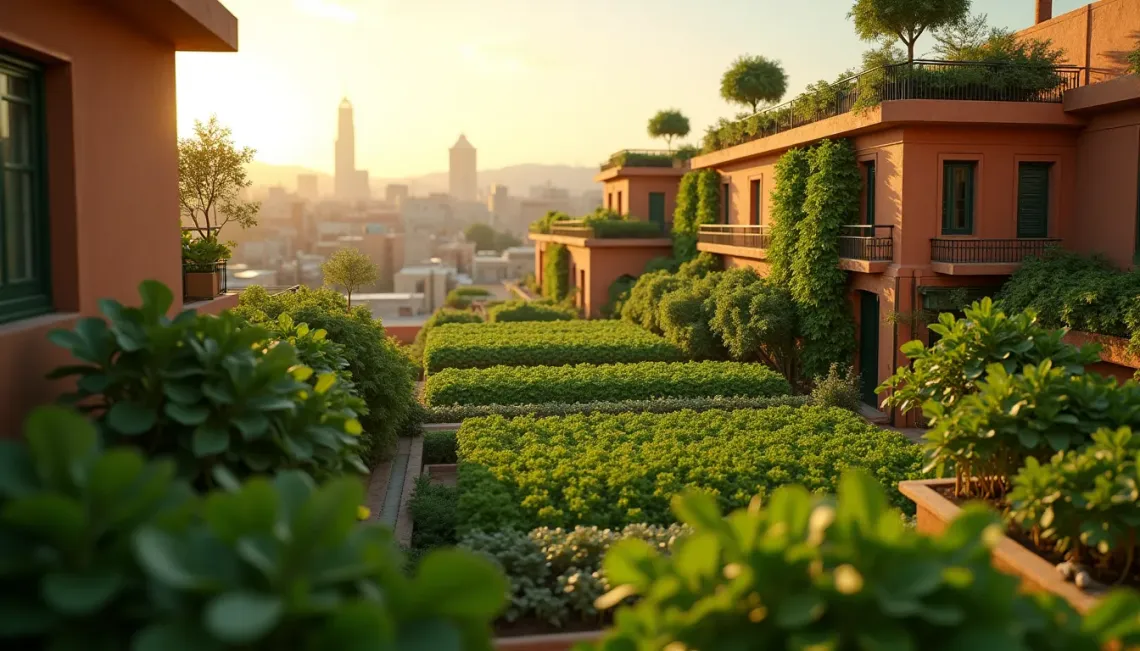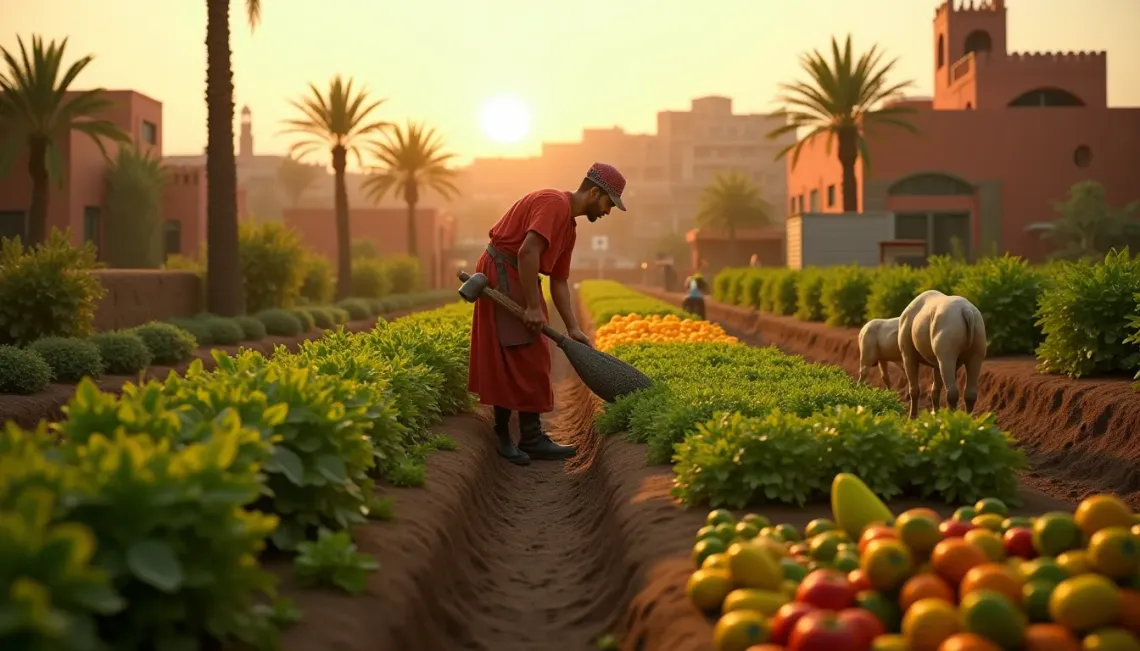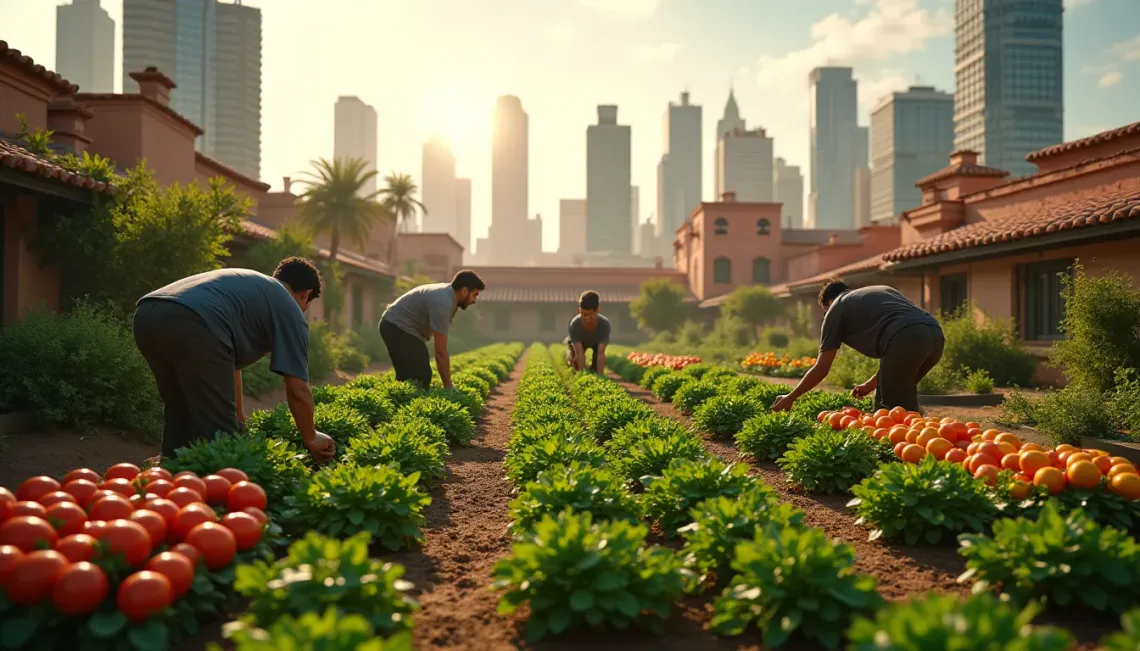Urban farming in Morocco is revolutionizing how city dwellers engage with nature while enhancing sustainable food production. As several Moroccan cities identify the potential of city agriculture, urban spaces transform into productive gardens, supporting both food security and community development.
Understanding Urban Farming in Morocco
Urban farming involves cultivating, processing, and distributing food in or around urban areas. In Morocco, this practice is gaining traction as city residents seek sustainable food solutions and healthier lifestyles. The integration of urban agriculture into Moroccan cities addresses immediate food needs and contributes to environmental sustainability, making city agriculture a crucial component of modern urban planning.
The Rise of Community Gardening
Community gardening has become a popular facet of urban farming in Morocco. These shared spaces allow locals to grow vegetables, fruits, and herbs collectively. Community gardens not only provide fresh produce but also foster a sense of camaraderie and cooperation among participants.
- Promotes environmental stewardship
- Encourages community engagement
- Offers educational opportunities for all ages
Sustainable Food Production in City Spaces
Sustainable food production is at the heart of city agriculture efforts in Morocco. By optimizing limited urban spaces for agriculture, cities can produce fresh, nutrient-rich food while reducing dependence on imported goods. Urban farmers employ techniques such as vertical gardening and hydroponics, ensuring efficient use of space and resources.
Benefits of Urban Farming in Moroccan Cities
Integrating urban farming into Moroccan city landscapes offers numerous advantages:
- Improved Food Security: Local food production reduces reliance on imports and ensures a steady food supply.
- Environmental Benefits: Urban gardens improve air quality, manage waste, and contribute to biodiversity in cities.
- Health and Well-being: Access to fresh produce supports better nutrition and promotes physical activity.
Challenges and Opportunities
While urban farming in Morocco presents significant opportunities, it also faces challenges such as limited land availability and regulatory hurdles. Nonetheless, innovative approaches and supportive policies can help overcome these barriers, paving the way for more expansive city agriculture initiatives.
The Future of Urban Farming in Morocco
As interest in sustainable urban living grows, the future of urban farming in Morocco looks promising. Continued collaboration between government bodies, local communities, and private sectors will be essential in expanding urban agriculture initiatives. By investing in urban farming, Morocco can enhance food sustainability and urban resilience, ultimately creating greener, more vibrant cities.
Urban farming in Morocco not only addresses the challenges of food production in city spaces but also builds stronger, healthier communities. Through the shared efforts of residents and policymakers, Morocco's urban landscapes can become pivotal players in the global movement towards sustainable food systems.
To learn more about sustainable food practices, you can explore topics like Organic Farming in Morocco and Water Conservation Techniques in Agriculture for further insights.




